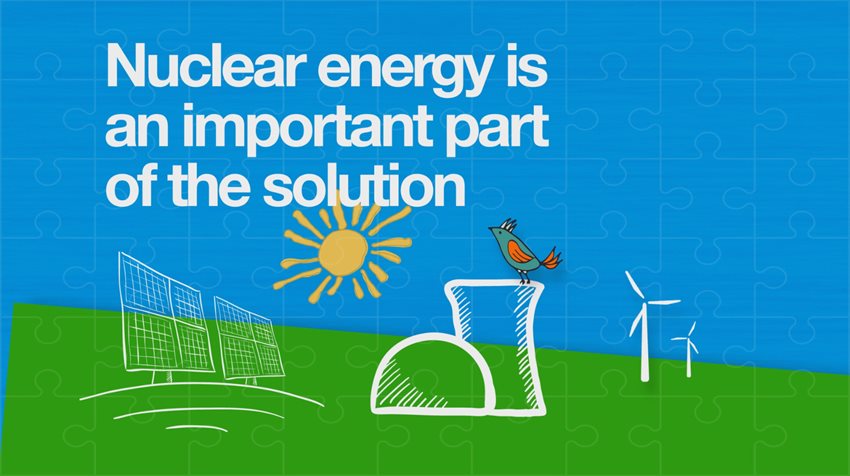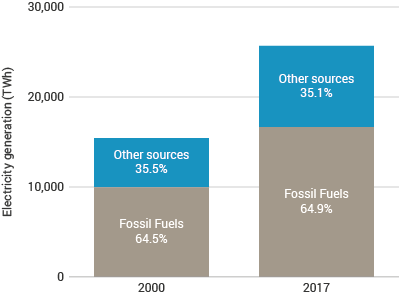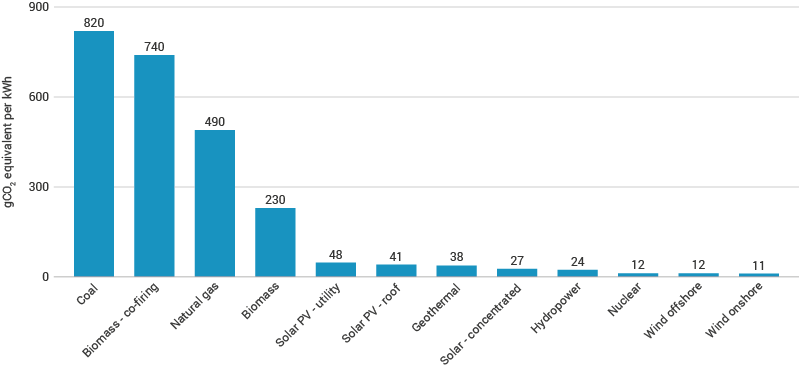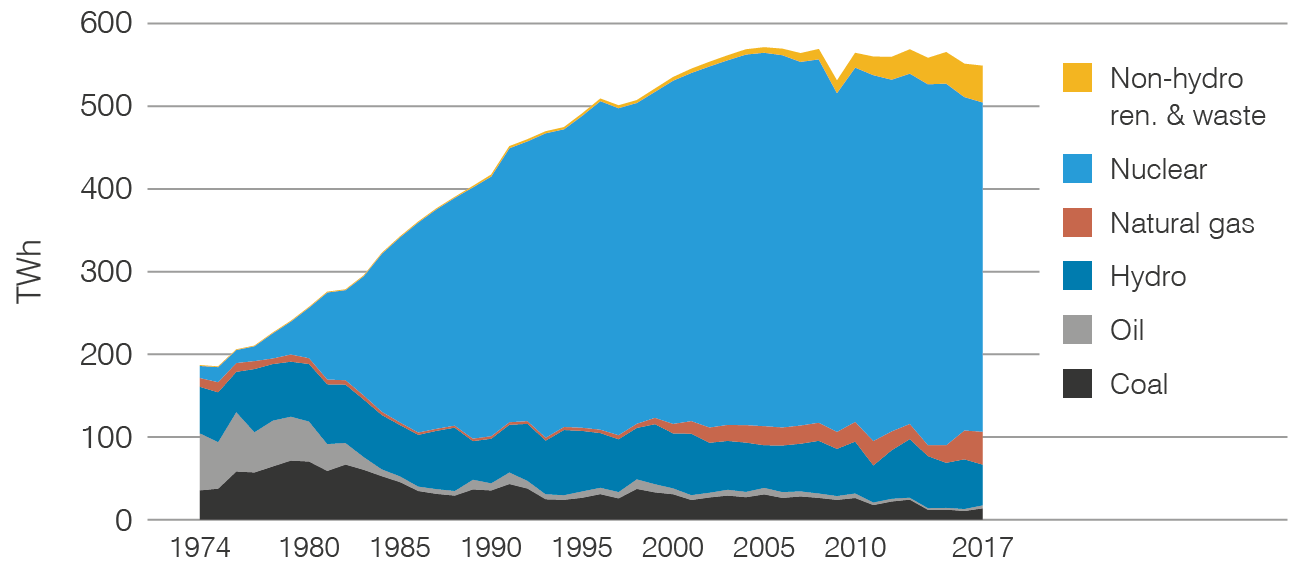How can nuclear combat climate change?
To limit the impacts of climate change, the world must rapidly reduce its dependency on fossil fuels to reduce greenhouse gas emissions. Nuclear energy is low-carbon and can be deployed on a large scale at the timescale required, supplying the world with clean, reliable, and affordable electricity.

Climate change – an accelerating global problem
The United Nations has identified climate change as "the defining issue of our time", with the central aim of the 2015 Paris Agreement is to keep the rise in global temperatures to well below 2 °C compared to pre-industrial levels, and with the aim to limit the rise to 1.5 °C. This is driven by the scientific consensus that limiting the rise to 1.5 °C would significantly reduce the risks posed by climate change. Despite this, carbon dioxide emissions related to energy continue to rise – reaching 33.1 billion tonnes in 2018, a record high, and have increased by more than 40% since 2000.
Concerted international efforts over the past 20 years have increased the amount of electricity generated by wind, solar and other renewable sources, but have failed to displace fossil fuels from the mix. As a matter of fact, in 2017, fossil fuels produced more electricity – in relative and absolute terms – than ever before. In its 2018 report, Global Warming of 1.5 °C, the Intergovernmental Panel on Climate Change (IPCC) warned that we are likely to breach the 1.5 °C threshold by as early as 2030.

Fossil versus non-fossil fuel electricity generation in 2000 and 2017 (Source: IEA World Energy Outlook)
Nuclear is low-carbon
Nuclear power plants produce no greenhouse gas emissions during operation, and over the course of its life-cycle, nuclear produces about the same amount of carbon dioxide-equivalent emissions per unit of electricity as wind, and one-third of the emissions per unit of electricity when compared with solar.

Average life-cycle carbon dioxide-equivalent emissions for different electricity generators (Source: IPCC)
Experts have concluded that in order to achieve the deep decarbonisation required to keep the average rise in global temperatures to below 1.5°C, combating climate change would be much harder, without an increased role for nuclear. Because nuclear power is reliable and can be deployed on a large scale, it can directly replace fossil fuel plant, avoiding the combustion of fossil fuels for electricity generation. The use of nuclear energy today avoids emissions roughly equivalent to removing one-third of all cars from the world’s roads.
.jpg.aspx) Nuclear power plants, such as the Diablo Canyon power station in California, provide our societies with reliable and affordable electricity, day in and day out (Photo: Mike Baird)
Nuclear power plants, such as the Diablo Canyon power station in California, provide our societies with reliable and affordable electricity, day in and day out (Photo: Mike Baird)
Modern society is becoming more and more dependent on electricity, with demand steadily increasing as transport, domestic heating and industrial processes are increasingly electrified. Whilst electricity is clean at the point of use, its generation currently produces over 40% of all energy-related carbon emissions. Decarbonising the electricity supply, whilst providing affordable and reliable electricity to a growing global population, must be central to any climate change strategy.
Nuclear energy has shown that it has the potential to be the catalyst for delivering sustainable energy transitions, long before climate change was on the agenda. France generates over 70% of its electricity from nuclear power – the largest nuclear share of any country globally – and its electricity sector emissions are one-sixth of the European average. In around 15 years, nuclear power went from playing a minor role in the French electricity system to producing the majority of its electricity, showing that nuclear energy can be expanded at the speed required to effectively combat climate change.

The French electricity mix 1974-2017 (Source: IEA)
Achieving Harmony
All technologies that can contribute towards solving one of the greatest challenges faced by humankind should be deployed. We cannot afford to wait, as the impacts of climate change will hit the poorest and most vulnerable first and failing to act will have significant humanitarian consequences.
The nuclear industry recognises the scale and immediacy of the challenge, and the important role that all low-carbon energy sources must play. Harmony – the industry’s vision for the future of electricity supply – sets a target to build an additional 1000 GWe of nuclear reactors across the world so that nuclear power would provide 25% of electricity by 2050. By achieving Harmony, we can build a new, cleaner and truly sustainable world – enabling us to pass on a cleaner planet to our children.
